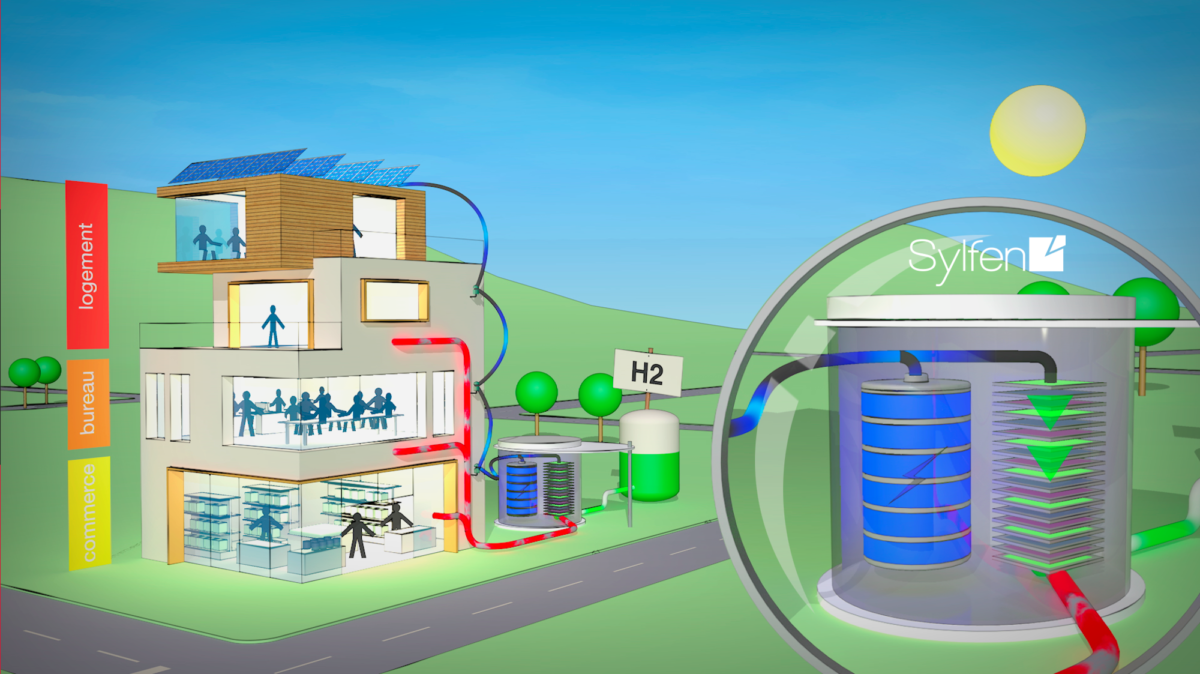From pv magazine France.
Every year since 2009, the European Association of Research and Technology Organizations (EARTO) – which links industry with academic research – has awarded Delivered Impact and Expected Impact prizes.
This year, the latter prize went to the French Alternative Energies and Atomic Energy Commission (CEA) for its Smart Energy Hub innovation, a hybrid energy storage and co-generation system.
Designed by start-up Sylfen, the Smart Energy Hub makes it possible to store the surplus electricity produced by, for example, a solar rooftop as hydrogen gas and then to release the stored energy in the form of electricity as well as co-generation – which sees the heat produced by the gas harnessed for space heating. The innovation of the system lies in the reversibility of the energy processor.
Bi-directional system
The Smart Energy Hub is based on solid oxide fuel cell (rSOC) technology developed at the CEA. “This energy processor, also called [a] reversible electrolyzer or reversible fuel cell, brings new features,” stated Sylfen, “it functions as an electrolyser to store electricity in the form of hydrogen and as a fuel cell to produce electricity and heat from this hydrogen or (bio) gas.”
The CEA said tests had shown CO2 emissions could be reduced 26-75%, depending on the type of building concerned, while reducing energy bills.
According to the EARTO website, a prototype of the Smart Energy Hub has been in service since 2018. Demonstration systems will be delivered in Turin, Paris and Sorrento “by 2020”, said the organization, and the first units to be marketed should be produced from 2021. The first systems will be targeted at buildings and ‘eco-districts’, said the EARTO site.
In a typically understated start-up prediction, Sylfen expects an annual turnover of €100 million in 2024. In the longer term, it aims to achieve turnover of €1 billion, create more than 2,500 jobs and become one of the industrial cornerstones of Europe’s new energy industry.
The potential global market for the Smart Energy Hub has been estimated at €10 billion by next year, according to the CEA.
This content is protected by copyright and may not be reused. If you want to cooperate with us and would like to reuse some of our content, please contact: editors@pv-magazine.com.



An interesting problem solver project.
The goal of this project is to make hydrogen energy storage ready for prime time on the French grid.
To follow the success of this project, readers can download my levelized cost of hydrogen energy storage (LCOS) financial algorithm that I presented at Wind Europe 2019 in Bilbao, Spain. Readers can find it on my website.